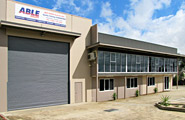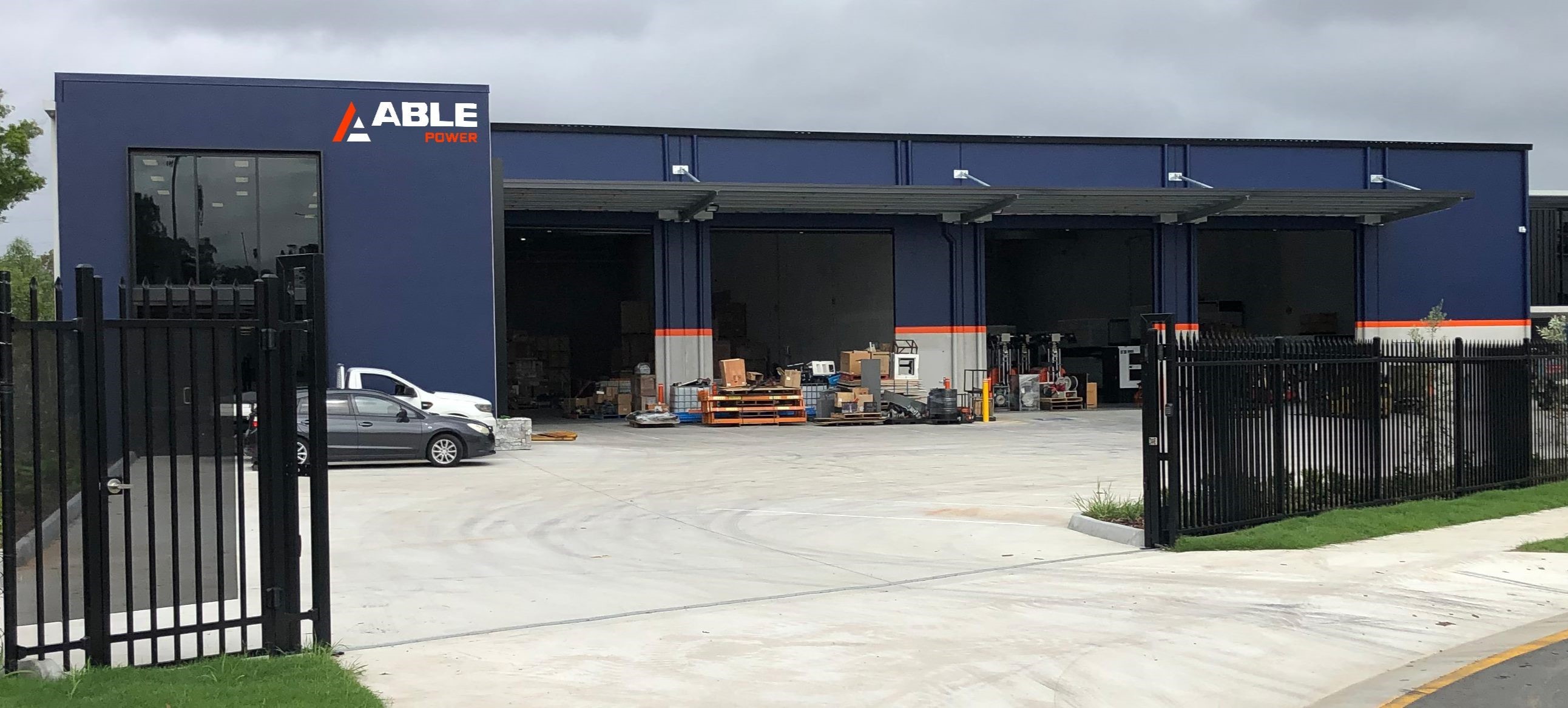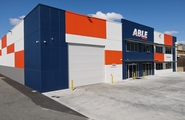Able Sales Locations

ABLE SALES(Melbourne)
Monday-Friday: 8am-5pm
Saturday: closed
Unit 5 / 11 Industrial Avenue,
Thomastown VIC 3074
(03) 9302 3602
LOCAL CALL 1300 735 902

ABLE SALES(Brisbane)
Monday-Friday: 8am-5pm
Saturday: closed
Unit 1 / 8 Prosperity Place,
Park Ridge QLD 4125
(07) 3272 9001
LOCAL CALL 1300 735 840

ABLE SALES(Perth)
Monday-Friday: 8am-5pm
Saturday: 8am-12pm
Unit 3 / 41 Tate Street,
Bentley WA 6102
(08) 9358 2299
LOCAL CALL 1300 793 001
Recent posts
Diesel Generators for Home Use
Making a Case for Home Generator Systems
Living in semi-rural, regional and remote areas unfortunately means issues with electricity reliability. Power outages like extended blackouts or brownouts where you are drawing very low levels of electricity from the grid (and potentially damaging your electrical equipment) are commonplace. Extreme weather, fallen trees, and faulty tendencies of the country’s electricity infrastructure make it important for residential customers to backup diesel generator for home use.
Medium and large-scale home improvement projects can also necessitate power outages while new wiring is being added or reworked. Having a diesel generator on hand makes for a smoother transition with less interruption to you and your family’s day-to-day life while your renovations continue.
If your family likes to spend time outdoors, a portable home generator makes camping and four wheel driving adventures safer and more comfortable by ensuring power is by your side should you happen to need it.
Farms, solar-powered houses, and the increasing popularity of “off-grid” living are all contributing to the growing demand for home generator systems.
The Diesel Generator Advantage
There are different types of home generators to consider, of course. It is important to pick a model that perfectly suits your situation and lifestyle. Diesel and petrol are the two most common models on the market. Both are designed to get the job done, and even though petrol is currently less expensive per litre, fluctuating fuel prices have diesel closing in on petrol prices. Since the fuel will need to be stored at your home, it is crucial to note that diesel has a longer shelf life than petrol and cannot catch fire as easily, making the slightly higher cost worth the advantages. Overall, diesel generators boast better fuel efficiency than petrol models, making diesel models a more economical choice for your home over time and for prolonged periods of usage.
Diesel’s more proficient design saves you money. Diesel fuel causes less strain on the machine’s engine, and less wear and tear means less repairs. In fact, an 1800 rpm water-cooled diesel generator can run for up to 30,000 hours before requiring any serious maintenance. Similar petrol generators will require maintenance once they near 10,000 hours of operation.
The more simplistic design of diesel generators contributes to their longer lifespan and economic value, as well. Unlike its petrol counterparts, it requires no ignition system to get it going, no additional lubricant to keep it running smoothly, and operates at a lower temperature with fewer revolutions per minute.
Another thing to consider is the earth. With all the worry surrounding our homes’ carbon footprints, it is natural to wonder about the impact your diesel generator might have on the environment. While diesel generators indeed emit noxious gases and CO2, their fuel efficiency ensures that these fumes are released more slowly over time, and therefore won’t invade the area surrounding your home with heavy bursts of harmful fumes. On that note, it is important to keep in mind that some diesel machines are also designed to run on bio-fuel or natural gas if you choose.
What about Inverter Generators?
Another option in generator systems is the inverter model. These are smaller, more easily portable, and arguably quieter than a diesel model, but their power output leaves much to be desired if your family is looking for a backup power source, or something to get them through a home improvement project.
Inverters are not meant to run on “full speed.” They are not intended to sustain large household appliances – such as refrigerators or air conditioning units – in the event of a blackout, or provide complete back up during any other manner of power failure. Inverters will only work if there is already a source of electrical energy. It cannot produce its own. More often than not, inverters are used in partnership with traditional generators to convert one type of energy into another – as with a solar generator. Vehicles with ports and outlets for mobiles or televisions cannot power these devices with the same type of electricity used in homes. So the inverter switches standard energy into a direct current for use in a car.
While they have their place, and garner interest from homeowners for their small, quiet reputation, inverters are not typically what a family requires when in search of a backup generator for home use.
At a Glance: Diesel vs. Petrol
To sum it all up, diesel generators, compared to petrol, are best for home use in the event of an emergency for a number of reasons:
• Superb fuel efficiency
• Longer-lasting engine system
• Safer to store
• Better for the environment
• Reliable, high-output power source
Why not read our blog post for a more detailed look at the debate around diesel generators vs petrol generators.
Making the Superior Choice
At Able Sales, our customers’ best interests and satisfaction are top priority, which is why we always recommend diesel generators for home use. If you require further information on home generator systems, our experienced, helpful team is always eager to answer your questions. Contact us on 1300 793 001 to begin the process of protecting your family and home against black outs and power failures today!
.




